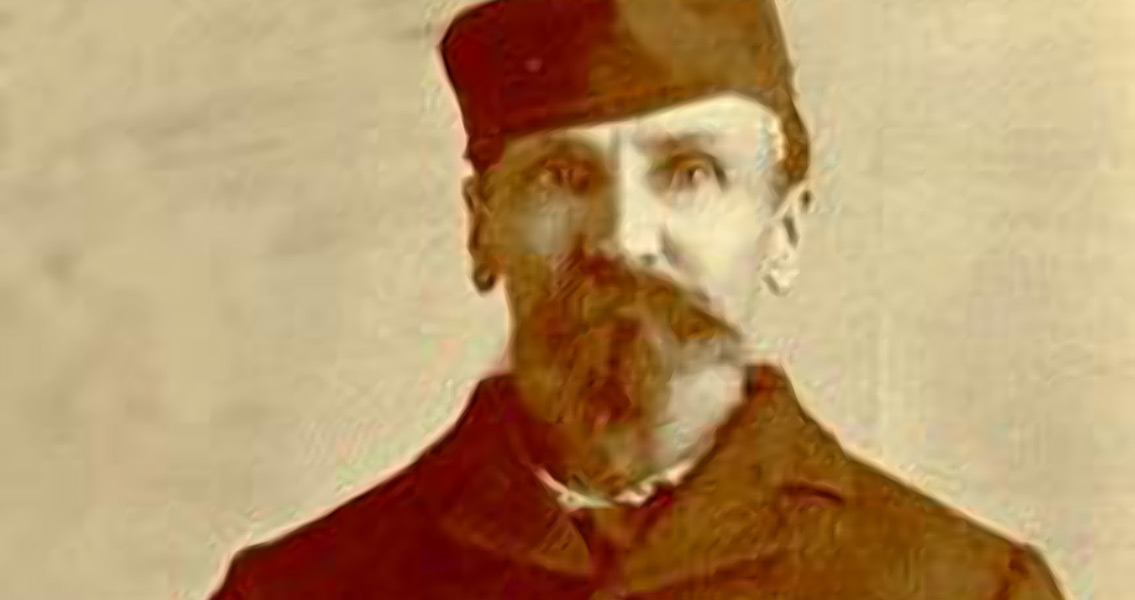<![CDATA[The first confessed cannibal ever tried and convicted through the US court system, Alfred 'Alferd' Packer was released on parole on 7th January, 1901. He had served 18 years in prison on a conviction of manslaughter. Details of Packer's alleged crime are far from clear, partly due to his own changing testimony, but also because of the newspaper campaign around the time of his release where several editorials and articles in the Denver Post questioned his guilt. Packer quickly confessed to having committed cannibalism, but denied until his death the charge of manslaughter, claiming his victims were already dead when he started to feast on them. The gruesome story began in the winter of 1873, in Salt Lake City, when Packer was hired as a guide by twenty men embarking on a gold prospecting trip into the San Juan Mountains of Colorado. Packer claimed he had experience driving an ore wagon in Colorado's mining camps, convincing the men that he could bring them to the valuable ore they craved. In January 1874, the expedition arrived cold and desperate at the Ute camp of chief Ouray. The brutal winter that year had taken a heavy toll on the prospectors, hindering their progress and leaving them hungry and freezing despite having traveled a relatively short distance. The Native American tribe fed and took care of the 20 man group, and warned them against continuing the perilous trip into the mountains before spring. The mountain passes had been rendered treacherous, the risk of avalanches was high, and the unpredictable blasts of snowfall severe enough to simply bury the men alive. Gold fever got the better of five of the team however, and Packer led Israel Swan, James Humphrey, Wilson Bell, Frank Miller, and George Noon into the San Juan mountains. Exactly what happened next can only be speculated about, the only evidence Packer's version of the events. Two months after the five set off, Packer emerged alone at the Los Pinos Indian agency. Reports claim he looked remarkably well fed, and immediately sought whiskey. They also claim he was carrying a suspiciously large amount of cash. Packer initially claimed that he had been separated from the other five men by a sudden blizzard, and wandered to the Los Pinos Indian Agency alone. Under more intense questioning his story changed considerably. He insisted that four of the men had frozen to death. Desperate and close to starvation, Packer and Wilson Bell (the only one of the five to survive) were left with no choice but to eat the perished. Packer claimed he then had to kill Bell in self defense, the final member of the party having gone insane. In August, a Native American guide found strips of human flesh on the trail used by Packer's expedition. Later, the camp of the five missing men was found near Slumgullion pass. The fact that all five were discovered there contradicted Packer's story, suggesting something far more horrific, and he was quickly jailed. Although Packer managed to escape imprisonment, and live under a false name for nine years, he was eventually recaptured and brought to trial. Packer's story changed yet again, but the basic argument that he'd only killed in self-defense, and resorted to cannibalism as a last resort, remained. Undermined by his shifting version of events, he was found guilty and sentenced to forty years in prison. Packer remained in prison until the Denver Post took an interest in the events sometimes deemed the 'Packer Massacre'. The campaign for his release eventually saw him win parole on 7th January 1901, but exactly what happened in the San Juan mountains in the winter of 1873 - 74, remains a mystery to this day. ]]>
Self-Confessed Cannibal Released on Parole
